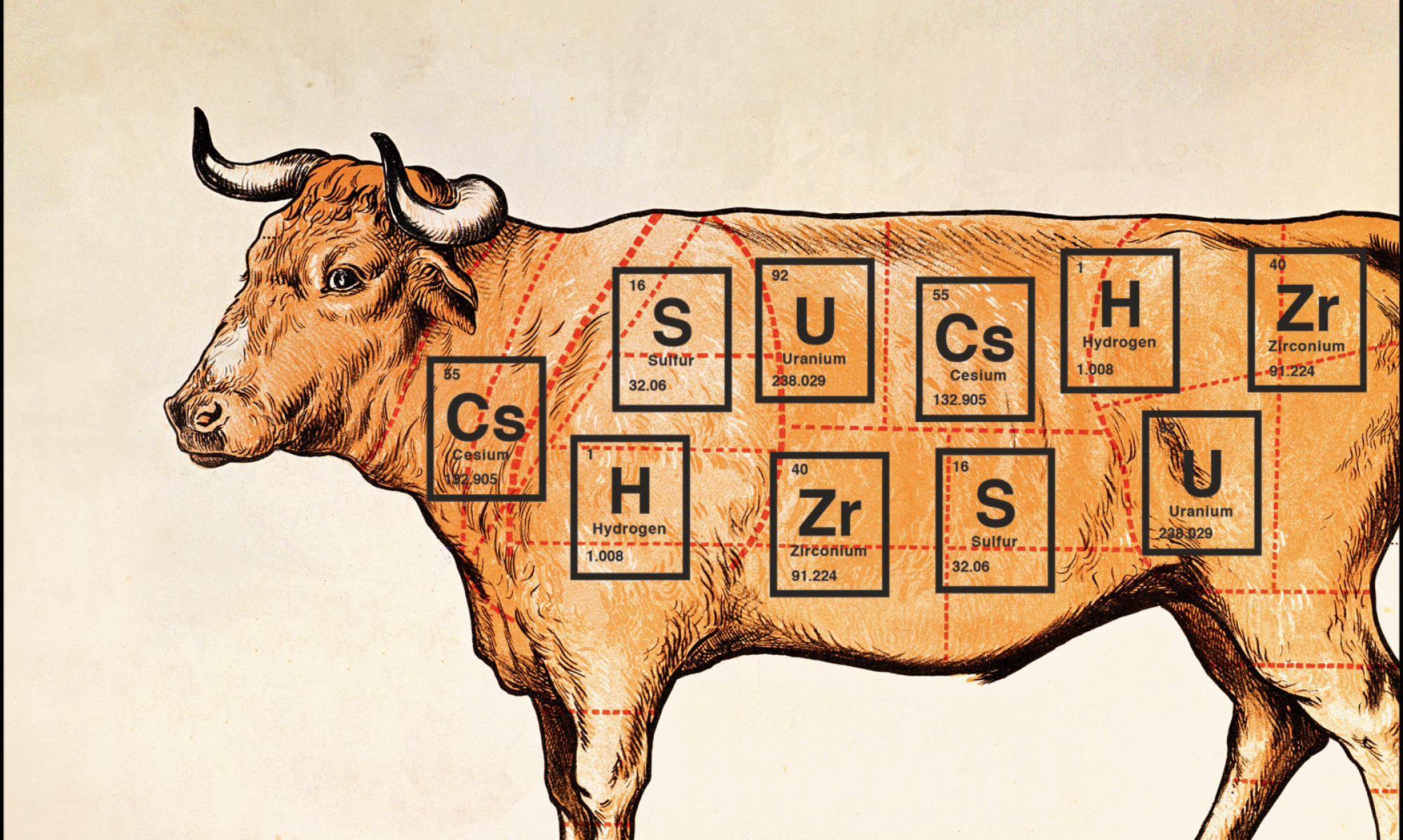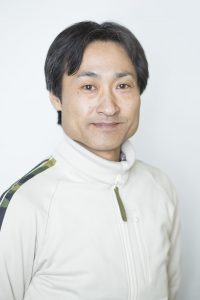
Kimura Yūsuke was born in 1970 in Hachinohe, Aomori Prefecture. He began writing fiction while in college and won the Subaru Literary Prize in 2009 for his debut work, Umineko tsurīhausu (Catgull Treehouse). In 2012 Isa no hanran (Isa’s Deluge), a novella addressing conditions following the 2011 Tōhoku disasters, was shortlisted for the Mishima Yukio Prize, and in 2014 Seichi shī-esu (Cesium Sacred Ground) was shortlisted for the Noma Prize for Literature. Sacred Cesium Ground and Isa’s Deluge are the first of his works to be translated into English.
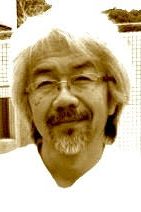 Keijiro Suga (b.1958) is a Tokyo-based poet and critic who is professor of critical theory in the graduate program Places, Arts, and Consciousness at Meiji University’s School of Science and Technology. He has published eleven books of essays of which critical travelogue Transversal Journeys (2009) was awarded the Yomiuri Prize for Literature in 2011. He is also the author of five collections of poetry in Japanese. His most recent book of poetry is in English and published by the University of Canberra and titled Transit Blues. In 2018, he has been invited to read at UNESCO (Paris), UCLA, the Universities of Trier and Canberra, and the International Poetry Festival in Guayaquil, Ecuador.
Keijiro Suga (b.1958) is a Tokyo-based poet and critic who is professor of critical theory in the graduate program Places, Arts, and Consciousness at Meiji University’s School of Science and Technology. He has published eleven books of essays of which critical travelogue Transversal Journeys (2009) was awarded the Yomiuri Prize for Literature in 2011. He is also the author of five collections of poetry in Japanese. His most recent book of poetry is in English and published by the University of Canberra and titled Transit Blues. In 2018, he has been invited to read at UNESCO (Paris), UCLA, the Universities of Trier and Canberra, and the International Poetry Festival in Guayaquil, Ecuador.
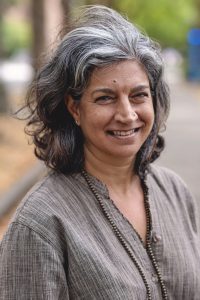 Davinder Bhowmik is an associate professor at the University of Washington, Seattle. She teaches and publishes research in the field of modern Japanese literature, with a specialization in prose fiction from Okinawa, where she lived until the age of 18. Regional fiction, the atomic bombings, film, and ecocriticism constitute some of her other scholarly interests. Her publications include Islands of Protest: Japanese Literature from Okinawa (University of Hawai’i Press, 2016); “Subaltern Identity in Okinawa” (in Reading Colonial Japan, Stanford University Press, 2012); Writing Okinawa: Narrative Acts of Identity and Resistance (Routledge, 2008); and “Temporal Discontinuity in the Atomic Bomb Fiction of Hayashi Kyôko (in Ôe and Beyond: Fiction in Contemporary Japan, University of Hawai’i Press, 1999). Currently, she is writing a book manuscript on military basetown literature in Japan.
Davinder Bhowmik is an associate professor at the University of Washington, Seattle. She teaches and publishes research in the field of modern Japanese literature, with a specialization in prose fiction from Okinawa, where she lived until the age of 18. Regional fiction, the atomic bombings, film, and ecocriticism constitute some of her other scholarly interests. Her publications include Islands of Protest: Japanese Literature from Okinawa (University of Hawai’i Press, 2016); “Subaltern Identity in Okinawa” (in Reading Colonial Japan, Stanford University Press, 2012); Writing Okinawa: Narrative Acts of Identity and Resistance (Routledge, 2008); and “Temporal Discontinuity in the Atomic Bomb Fiction of Hayashi Kyôko (in Ôe and Beyond: Fiction in Contemporary Japan, University of Hawai’i Press, 1999). Currently, she is writing a book manuscript on military basetown literature in Japan.
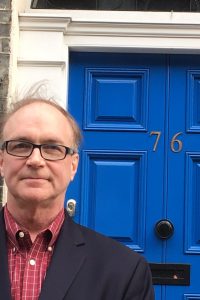 Michael Bourdaghs is Robert S. Ingersoll Professor in East Asian Languages and Civilizations at the University of Chicago. He is the author of Sayonara Amerika, Sayonara Nippon: A Geopolitical Prehistory of J-Pop (2012; Japanese trans. 2012) and The Dawn That Never Comes: Shimazaki Toson and Japanese Nationalism (2003). He is also active as a translator, including Kojin Karatani, The Structure of World History: From Modes of Production to Modes of Exchange (2014) and his co-translation of Natsume Sōseki, Theory of Literature and Other Critical Writings (2009).
Michael Bourdaghs is Robert S. Ingersoll Professor in East Asian Languages and Civilizations at the University of Chicago. He is the author of Sayonara Amerika, Sayonara Nippon: A Geopolitical Prehistory of J-Pop (2012; Japanese trans. 2012) and The Dawn That Never Comes: Shimazaki Toson and Japanese Nationalism (2003). He is also active as a translator, including Kojin Karatani, The Structure of World History: From Modes of Production to Modes of Exchange (2014) and his co-translation of Natsume Sōseki, Theory of Literature and Other Critical Writings (2009).
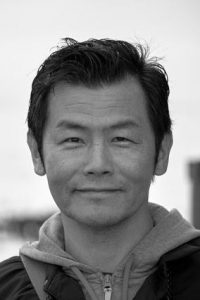 Leo T.S. Ching is Director of International Comparative Studies and Associate Professor of Asian & Middle Eastern Studies at Duke University. He is the author of Anti-Japan: The Politics of Sentiment in Postcolonial East Asia (Duke U Press, 2019) and Becoming Japanese: The Politics of Identity Formation in Colonial Taiwan (U of California Press, 2001). He is currently working on a project titled Isle-Margins: Jeju, Taiwan, and Okinawa as Decolonial Thinking that examines the epistemological and ontological differences between island-thinking and mainland-thoughts through the violent events of massacres and incarcerations during the trans-imperial moments of 1945-1949.
Leo T.S. Ching is Director of International Comparative Studies and Associate Professor of Asian & Middle Eastern Studies at Duke University. He is the author of Anti-Japan: The Politics of Sentiment in Postcolonial East Asia (Duke U Press, 2019) and Becoming Japanese: The Politics of Identity Formation in Colonial Taiwan (U of California Press, 2001). He is currently working on a project titled Isle-Margins: Jeju, Taiwan, and Okinawa as Decolonial Thinking that examines the epistemological and ontological differences between island-thinking and mainland-thoughts through the violent events of massacres and incarcerations during the trans-imperial moments of 1945-1949.
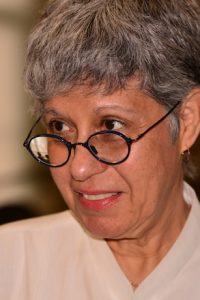 Agnes Lugo-Ortiz is a specialist in nineteenth-century Latin American literature, and in nineteenth- and twentieth-century Caribbean cultural history. Her work focuses on questions concerning the relationships between cultural production and the formation of modern socio-political identities. This is the subject of her book Identidades imaginadas: Biografía y nacionalidad en el horizonte de la guerra (Cuba 1860-1898) and of her current book-length project “Riddles of Modern Identity: Biography and Visual Portraiture in Slaveholding Cuba (1760-1886).” She is the author of numerous essays that address the interconnections between queer sexualities, gender and anti-colonial politics in twentieth-century Puerto Rico. Since 1994 she has been on the advisory board of the Recovering the US Hispanic Literary Heritage Project, and is co-editor of Herencia. The Anthology of Hispanic Literature of the United States, En otra voz. Antología de la literatura hispana de los Estados Unidos, and Recovering the US Hispanic Literary Heritage, vol. V. She is also the coordinator of the Humanities Division’s Project Towards a New Americas Studies.
Agnes Lugo-Ortiz is a specialist in nineteenth-century Latin American literature, and in nineteenth- and twentieth-century Caribbean cultural history. Her work focuses on questions concerning the relationships between cultural production and the formation of modern socio-political identities. This is the subject of her book Identidades imaginadas: Biografía y nacionalidad en el horizonte de la guerra (Cuba 1860-1898) and of her current book-length project “Riddles of Modern Identity: Biography and Visual Portraiture in Slaveholding Cuba (1760-1886).” She is the author of numerous essays that address the interconnections between queer sexualities, gender and anti-colonial politics in twentieth-century Puerto Rico. Since 1994 she has been on the advisory board of the Recovering the US Hispanic Literary Heritage Project, and is co-editor of Herencia. The Anthology of Hispanic Literature of the United States, En otra voz. Antología de la literatura hispana de los Estados Unidos, and Recovering the US Hispanic Literary Heritage, vol. V. She is also the coordinator of the Humanities Division’s Project Towards a New Americas Studies.
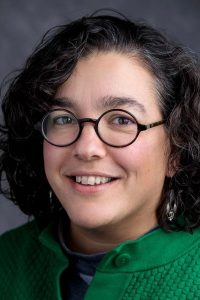
Na’ama Rokem works on Modern Hebrew and German-Jewish literature. Her first book, Prosaic Conditions: Heinrich Heine and Spaces of Zionist Literature (Northwestern University Press, 2013) argues that prose – as a figure of thought, a mode and a medium – played an instrumental role in the literary foundations of the Zionist revolution. She is now writing a book about the encounter between Paul Celan and Yehuda Amichai, as well as articles on multilingualism and translation in the works of Hannah Arendt and Leah Goldberg, on the politics of translation in Israel. With Amir Eshel, she coedited a special issue of Prooftexts, on German-Hebrew relations.
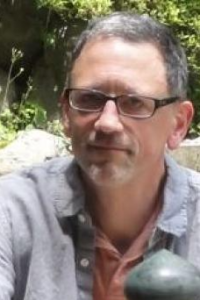
Doug Slaymaker is professor of Japanese at the University of Kentucky, USA. His research focuses on literature and art of the twentieth century, with particular interest in the literature of post-3.11 Japan, and of animals and the environment. This will become a book entitled Between Animals and Disaster: Representing Life after 3.11. Other research projects examine Japanese writers and artists traveling to France. He is the translator of Kimura Yūsuke’s Sacred Cesium Ground and Isa’s Deluge and Furukawa Hideo’s Horses, Horses, in the End the Light Remains Pure (Columbia University Press).
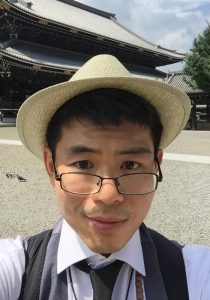
Tommy Tran majored in Asian Studies at UC Riverside and obtained a PhD in Asian Languages and Cultures at UCLA. His work focuses primarily on Cheju Island, South Korea’s sole island province. Tran continuously researches the interconnected issues of urban development, tourism, and heritage in the context of the island’s ambitious “Free International City” project. He currently is employed at UC Merced in the Department of History. Aside from academia, Tran has worked with the two NGOs Global Inner Peace and JICEA on Cheju in promoting local public history.
